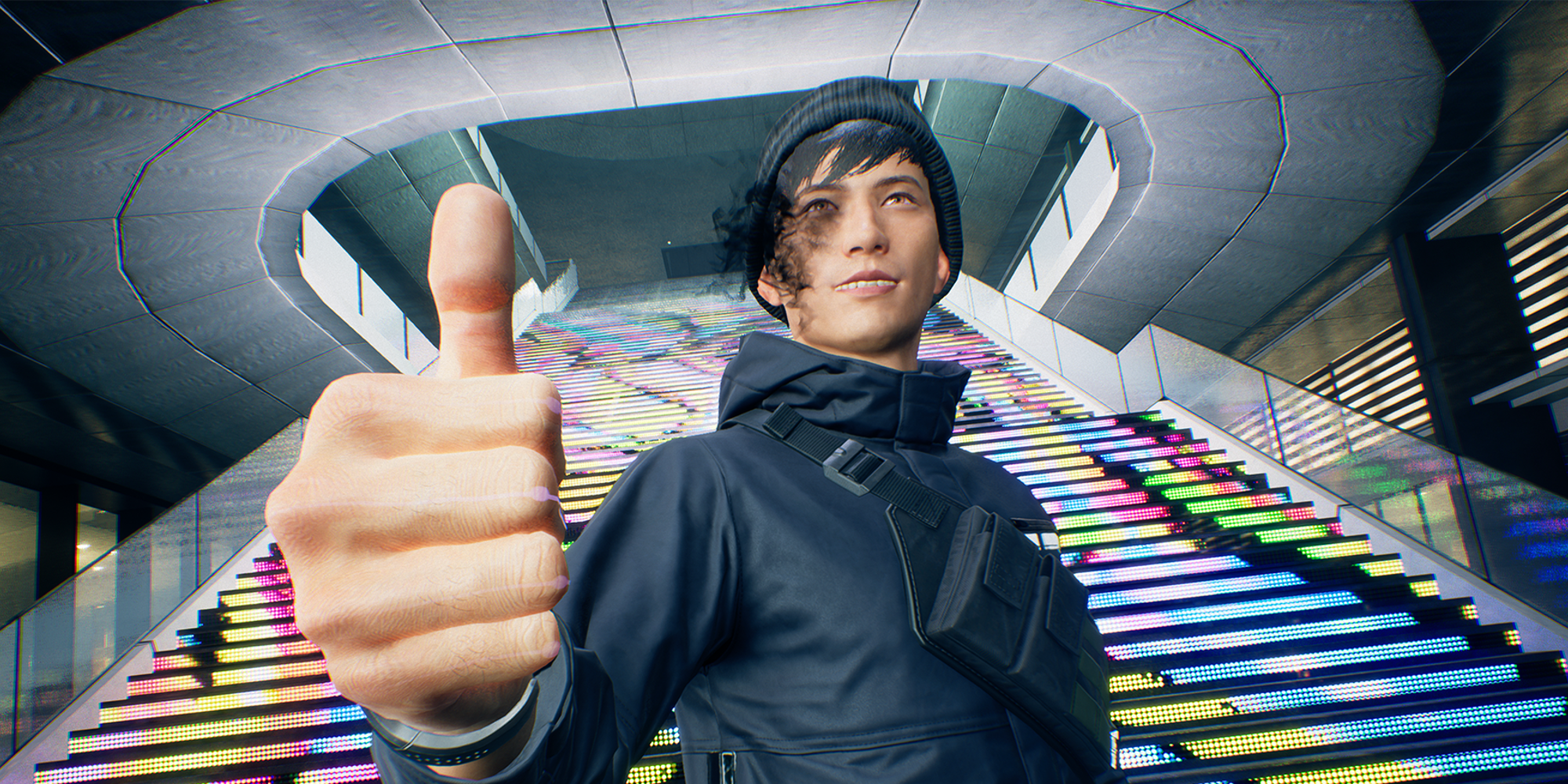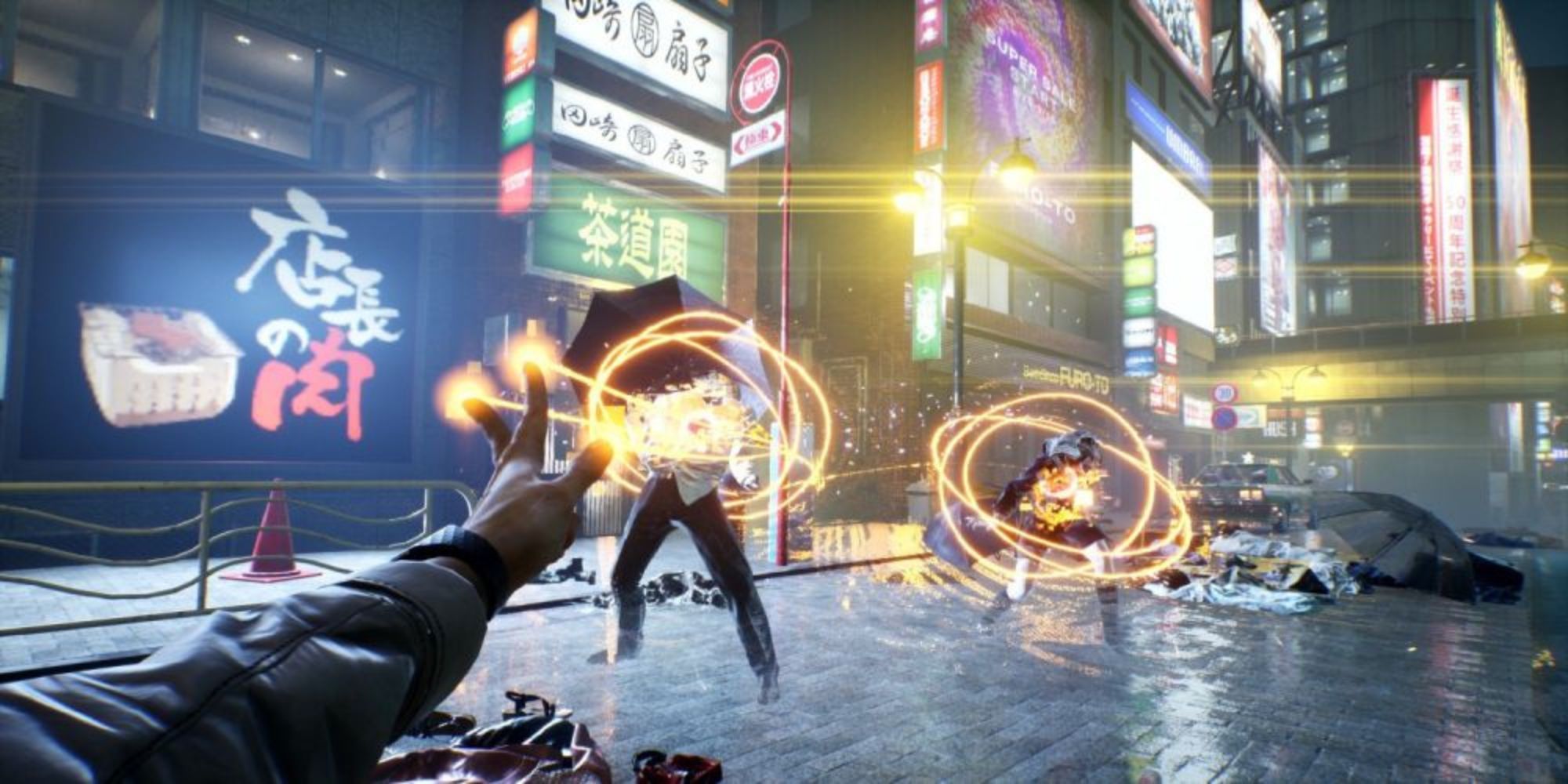I liked Ghostwire: Tokyo. I liked it a lot. It was that perfect level of double-A scope with triple-A polish that we expect from medium-level budgets these days. I liked the spirits and spellcasting, I liked the exploration of a misty, abandoned Tokyo. I can’t do horror but Ghostwire was just about my level of spooky, and it even got a spot on my Game of the Year list.
While I personally loved the game, I didn’t expect Ghostwire: Tokyo to have mass appeal. It sold four million copies, not a number to be sniffed at but a fraction of Elden Ring. Maybe that’s an unfair comparison, but it puts things in perspective. I would be gassed if a game I made sold 1/50th of the number that Elden Ring did, let alone 1/5th. But if we’ve established that Ghostwire: Tokyo was a great, but relatively niche, game, then why are we already getting so many Ghostwire-likes?
The first culprit to take the stand is Immortals of Aveum, due to be released next month. EA’s fantasy game describes itself as a “single-player first person magic shooter”. Sound familiar? Obviously the setting is very different to Ghostwire’s modern Tokyo, but the spellcasting – the core of Aveum’s gameplay – has surprising similarities to Tango Gameworks’ RPG.
If you ignore the bright, fantastical colours in EA’s magical shooter, the spellcasting is remarkably similar in both games. The intricate fingerwork and Kuji-kiri inspired hand movements for casting bullet-like spells has a similar presentation underneath the contrasting aesthetics. While Ghostwire’s shield is more minimalist and Aveum’s ‘bullets’ more vibrant, these games share a design and a soul.
Next up is Avowed, Obsidian’s definitely-not-an-Oblivion-remake. While there’s plenty more than spellcasting to this fantasy RPG (yes, another one), those tricksy fingers make a return. If you ignore the fungal bears and 300-style kicks off mountains – I know, it’s hard – the magic system that the denizens of Eora use again seems to take inspiration from Ghostwire: Tokyo.
Magic’s been done in plenty of games before, but I’m talking about the specifics here. Skyrim has some generic hand waves to cast a fireball and plenty of indies try the ‘guns but it’s magic spells’ thing (see: SpellFront and Grimoire: Manastorm off the top of my head), but few have paid such close attention to how your hands and fingers can become the weaponry.
Instead of limp instruments hanging uselessly at the front of your screen, the hands in Ghostwire and the games its magic system has inspired are lifelike, they react like real hands would. When it’s time for combat, they start the intricate weavings to make it feel like you’re really casting an ancient, complex spell.
But were Immortals of Aveum and Avowed really inspired by Ghostwire: Tokyo? It’s impossible to say for sure, but given the lengthy development times these days, they were likely both deep into their schedules before Ghostwire reared its magical head. However, development schedules can change, as can goals and ideas. I could see Avowed taking inspiration from Ghostwire in its magic system thanks to the relatively small part it plays in the gameplay, but Aveum? The whole game is based around the myriad spells and mana pools you have to control. It seems highly unlikely that the developer wouldn’t have already put work into the hand animations by the time Ghostwire was announced, let alone released.
If that’s the case, how have the two games with parallel development come to the same idea? It could be pure coincidence, like the fact that two entirely different comic strip characters called Dennis the Menace were first published on March 12, 1951 in the UK and USA respectively. Similarly to Dennis, the designers may have had no idea what the other was working on, and simply come to the same conclusion. Popular entertainment is full of these coincidences, with White House Down and Olympus Has Fallen or Super and Kick-Ass.
Another answer could be that this is simply the next evolution of video game magic. As games get more realistic, development times skyrocket, and players demand more from every game, maybe magic systems were just next in line to get better animations? This strikes me as too much of a coincidence, though. Two different, but modernised magic systems? Sure. Two that have incredibly similar gesture-based animations? Hmm.
I’m not accusing anyone of plagiarism here, I just think both games could have had similar inspirations. I wonder if the rise of VR put hand movements to the forefront of devs’ minds, if games like Superhot got them thinking about the application of finger-based shooting in non-VR games. Both have also been compared to Doctor Strange, which would have been the most popular movie in cinemas when Ghostwire and Aveum began development. I don’t know the answer for sure, but if Immortals of Aveum and Avowed achieve even moderate success, I predict we’ll see an even bigger wave of Ghostwire-likes hitting our shelves in the years to come.





